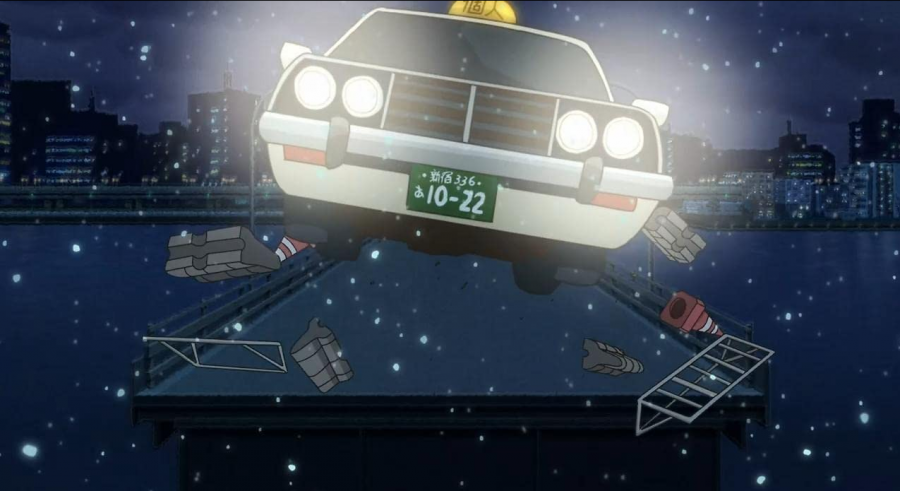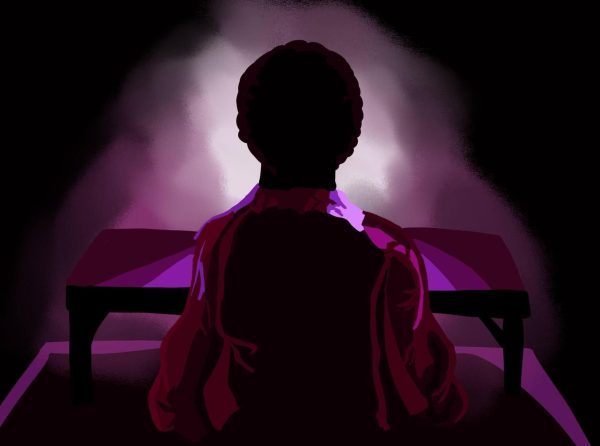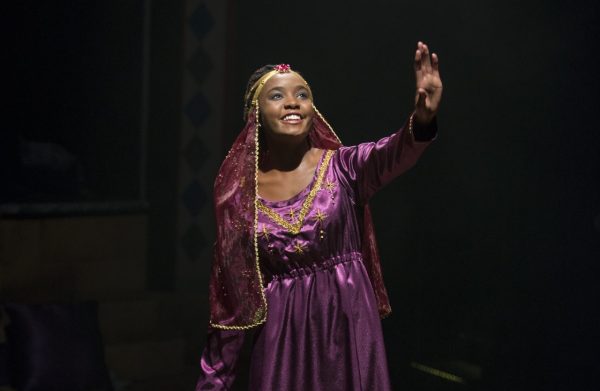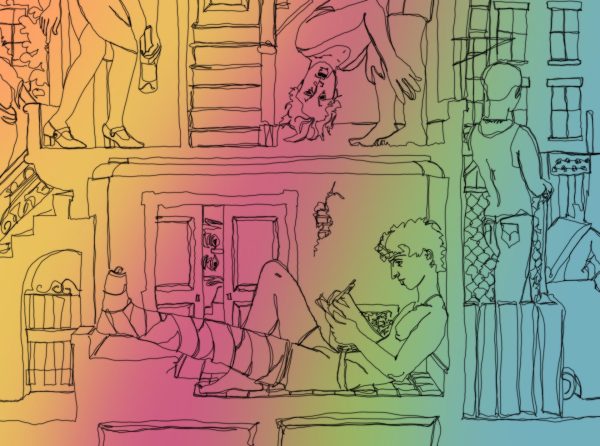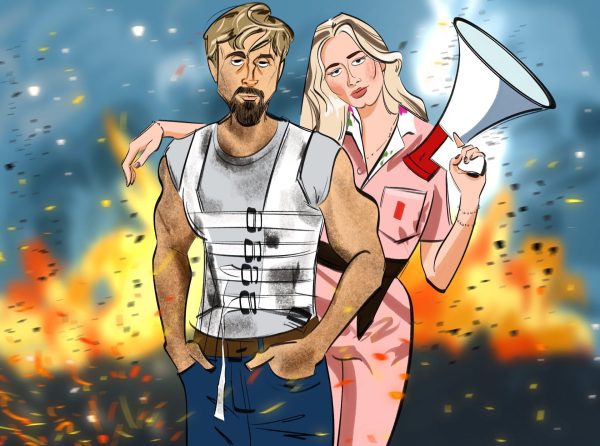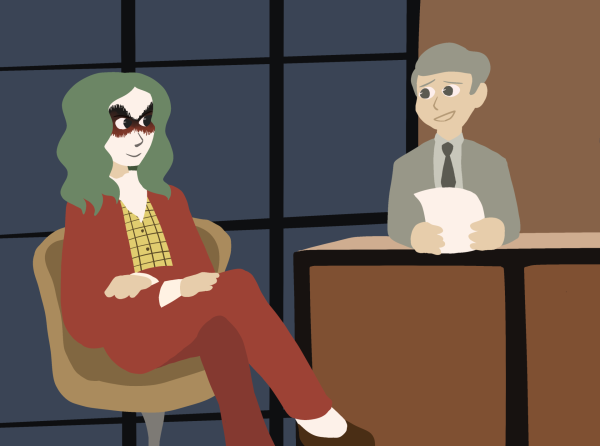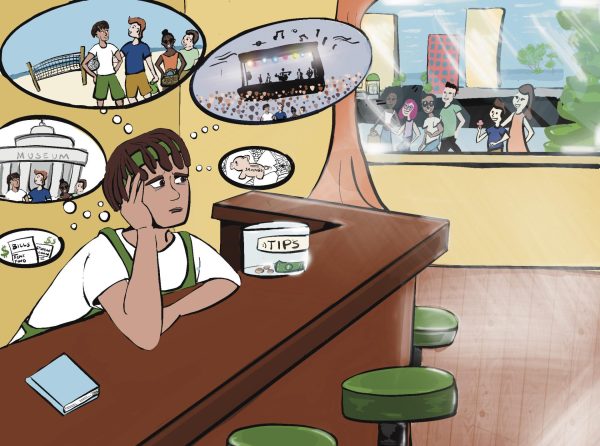In praise of ‘Odd Taxi’
When I say that I dislike most anime series, it’s not because I enjoy being a contrarian. I do, but my distaste here is well-founded upon years of disappointment. Time and time again, I’ve extended an olive branch to popular anime only to have it snapped in two and thrown back in my face by way of sub-par writing and intelligence-insulting, pornographic “fanservice.” But occasionally, I’ll encounter an anime which defies my expectations. I loved the humor and style of “One-Punch Man.” The bloody fantasy-infused dieselpunk odyssey of “Dorohedoro.” The contemplative melancholy of “Cowboy Bebop.” And now, a comparatively unknown series called “Odd Taxi,” which finished airing only a few weeks ago, may have surpassed all of those in becoming my new favorite.
Right from its uncharacteristically restrained opening, “Odd Taxi” establishes itself as beyond the tropes which entrap many of its anime contemporaries. We follow Odokawa, a jaded middle-aged taxi driver who becomes entangled in an intricate Coen Brothers-esque fiasco after a run-in with a wanted yakuza thug. One thing leads to another, which leads to another. Yakuza rivalries, kidnappings, a bank robbery, a murder cover-up — all of these and more eventually intertwine and coalesce around Odokawa into a masterful neo-noir caper.
But it’s not all as intense as it sounds. Odokawa’s sardonic quips, the general quick-wittedness of the dialogue and the pervasive melancholy typical of neo-noir stories all lend the series both an intelligent sense of levity and at the same time a subtle gravity. There’s a lot to unpack, and being as short of a series as it is, not an ounce of fat. Everything that takes place has a purpose, and every character, even the most unassuming, is eventually revealed as having some meaningful connection with the larger story which unfolds.
There are no filler episodes. There is no fanservice. “Odd Taxi” has no need for that which lesser anime would rely upon as crutches. What it has to offer is simple yet substantial: a great story. A great story populated with memorable characters, lovingly decorated with thought-provoking exchanges, engaging repartee, an excellent neo-noir mystery and further bolstered by an irresistibly charming art style and some great low-key music (especially the opening theme, which has been earworming its way around my head since I started the series).
I should address the walrus in the room. In place of humans, all of the characters in “Odd Taxi” are anthropomorphic animals (though the rest of the world they inhabit is otherwise normal). I’m sure this will put some people off immediately, and to those people: Let me assure you that “Odd Taxi” is no “Zootopia.” To reveal exactly how it is the plot is built around this quirk would entail some massive spoilers, so you’ll just have to take my word for it that in the world of “Odd Taxi,” nothing is as it seems.
A plot as complex as the one “Odd Taxi” presents us with isn’t going to be totally devoid of holes. And in all honesty, there were a few that I found difficult to overlook. Why does Dobu’s shooter not continue to pursue him in episode 9? Where does Shirakawa come from in episode 10? In a lesser anime, I’d be inclined to fixate on these more. But the extent to which “Odd Taxi” is able to juggle the innumerable threads of its many stories and weave them into and around each other, to bring several together and untie them again, to create compelling backstories, motivations, intersections and so on is frankly astonishing. Considering how consistently “Odd Taxi” succeeds, I can excuse the few instances in which it fails.
I would encourage everyone, whether you’re a lover of all things anime or feel the same way about most anime as I do, to check out “Odd Taxi.” I’ve seen it be compared to the obvious “Taxi Driver,” and also to my favorite neo-noir thriller, “Collateral,” and while it does have much in common with those both, “Odd Taxi” is above all else beautifully unique in its presentation: an anime series which I will remember fondly for many years to come, and a benchmark against which I will measure all other anime series going forward.


